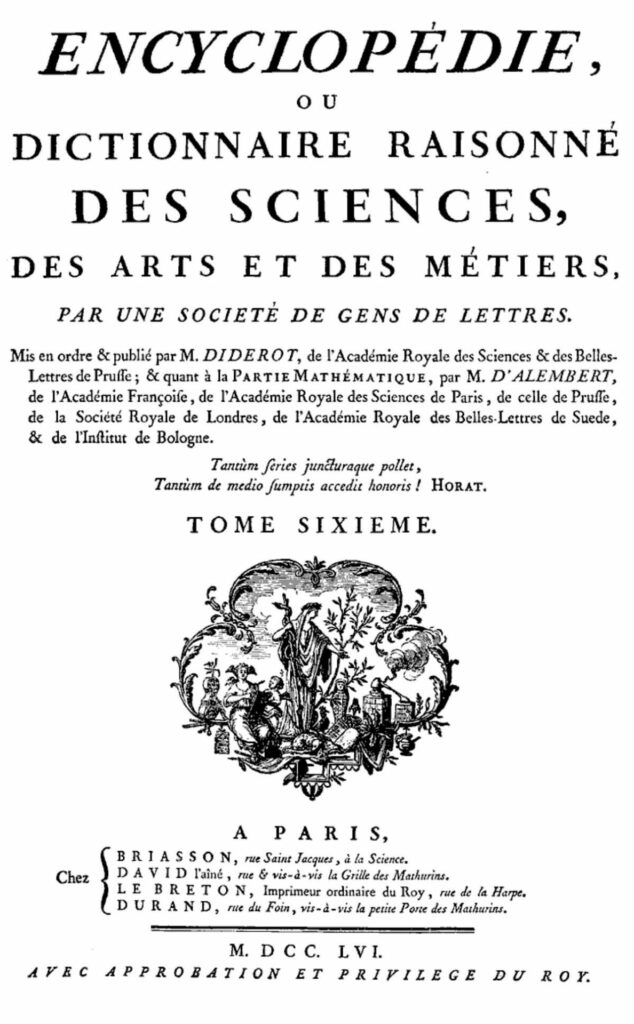15 October 1750 marks a milestone in the history of illustration and the spread of knowledge. On that day, two leading French philosophers, Denis Diderot and Jean le Rond d’Alembert, began work on what would become one of the most influential works of the Enlightenment: “L’Encyclopédie,” also known as “Encyclopédie, ou dictionnaire raisonné des sciences, des arts et des métiers” (Encyclopaedia or Reasoned Dictionary of the Sciences, Arts and Crafts).
Context of the Period: French Illustration
The 18th century in Europe witnessed an intellectual and cultural transformation known as the Enlightenment. The thinkers of this era advocated reason, science and human progress, and sought to challenge established power structures, including absolute monarchy and the Church. French Illustration was a beacon of this intellectual current, and “L’Encyclopédie” became one of its most emblematic projects.
The Purpose of L’Encyclopédie
Diderot and d’Alembert conceived “L’Encyclopédie” as a compendium of knowledge, an encyclopedia covering a wide range of subjects, from the sciences and the arts to crafts and philosophy. Its aim was to disseminate knowledge and to promote criticism and rational thought. The work was intended to provide information to a wide audience and not just to educated elites, which was revolutionary at a time when education was restricted to a few privileged classes.
Featured Collaborators
What makes “L’Encyclopédie” even more astonishing is the diversity of collaborators who contributed to its creation. For decades, a team of writers, scientists, philosophers, artists and editors contributed to the project. Notable collaborators included Voltaire, Jean-Jacques Rousseau, Montesquieu and many others.
Impact and legacy
Work on “L’Encyclopédie” went on for several years, and finally, 28 volumes were published between 1751 and 1772. This encyclopedia not only compiled existing knowledge but also promoted a worldview based on reason and enlightenment. Its pages contained discussions of liberty, equality, justice and criticism of oppression. “L’Encyclopédie” became a powerful tool for the propagation of revolutionary ideas, and its impact was not limited to France, but resonated throughout Europe and beyond.
Ultimately, “L’Encyclopédie” helped lay the foundations for the French Revolution and the struggle for human rights and equality around the world. This monumental project remains a testament to the importance of disseminating knowledge and promoting critical thinking in the quest for a better world. 15 October 1750 marked the beginning of an intellectual journey that changed history.










